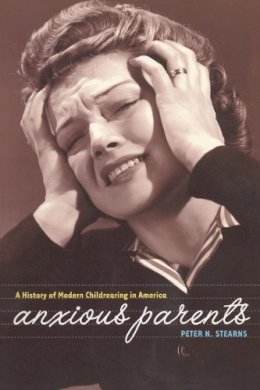
Stock image for illustration purposes only - book cover, edition or condition may vary.
Anxious Parents
Peter N. Stearns
€ 41.07
FREE Delivery in Ireland
Description for Anxious Parents
Paperback. Peter N. Stearns examines mounting pressures on modern families. Surveying popular media, "expert" childrearing manuals, newspapers, and journals, Stearns shows how schooling, physical and emotional vulnerability and the rise of commercialism became primary concerns for parents. Num Pages: 251 pages, black & white illustrations. BIC Classification: 1KBB; HBTB; JFSP1; VFXC. Category: (G) General (US: Trade). Dimension: 229 x 159 x 12. Weight in Grams: 348.
An examination into the history of modern parenting
The nineteenth and twentieth centuries saw a dramatic shift in the role of children in American society and families. No longer necessary for labor, children became economic liabilities and twentieth-century parents exhibited a new level of anxiety concerning the welfare of their children and their own ability to parent effectively. What caused this shift in the ways parenting and childhood were experienced and perceived? Why, at a time of relative ease and prosperity, do parents continue to grapple with uncertainty and with unreasonable expectations of both themselves and their children?
... Read more
Product Details
Format
Paperback
Publication date
2004
Publisher
New York University Press United States
Number of pages
251
Condition
New
Number of Pages
251
Place of Publication
New York, United States
ISBN
9780814798492
SKU
V9780814798492
Shipping Time
Usually ships in 7 to 11 working days
Ref
99-50
About Peter N. Stearns
Peter N. Stearns is Provost and University Professor at George Mason University. Since 1967, he has served as editor-in-chief of The Journal of Social History. His numerous books include World History in Documents; American Behavioral History; and Anxious Parents.
Reviews for Anxious Parents
"A strong, effective, and readable portrayal of how twentieth-century American parents have invested and over-invested in their children. In a fairly short compass, Stearns has demonstrated many of the things that historians have tended to belabor-the role of expertise, why despite their declining numbers, children have become so important socially, the new realm of consumption, how the anxiety about children ... Read more
